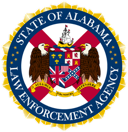Hardship Driver License Frequently Asked Questions
A Hardship Driver License is a limited driving privilege license for those who meet specific hardship eligibility requirements.
There are 4 ways an individual may be considered for a Hardship License:
1. Participating in an Alabama Department of Corrections regulated work release program.
2. Participating in a recognized/compliant Community Corrections Program.
3. Released from Alabama Department of Corrections custody.
4. License suspended/revoked and cannot obtain reasonable transportation.
Applicants will have limited driving privileges. A Hardship Driver License will be subject to all laws, rules, regulations, restrictions, and limitations that apply to a Class D License.
- WORK: driving to and from a place of employment, job training, job readiness programming, or job interviews.
- CHURCH: driving to and from a religious service, affiliated religious function, or a civic event recognized to meet basic secular needs for full societal participation.
- EDUCATION: driving to or from a sanctioned educational institution recognized by the State of Alabama where the individual is a regularly enrolled student, schools or childcare facilities where a family member or dependent is enrolled, or events sanctioned by the school or childcare facility where the student, family member, or dependent is enrolled.
- PROGRAMS: driving to or from any court-ordered program, treatment, community service, or event, including but not limited to drug or alcohol counseling or other rehabilitation program; court appearance; supervising probation and parole field office for reporting or programming; CCP; or work release program.
- MEDICAL: driving to and from a scheduled medical or mental health treatment appointment, a pharmacy for obtaining prescriptions, or in the event of a medical emergency.
- GROCERY/HOUSEHOLD: driving to and from purchasing food and household necessities and performing essential household duties.
- VOTING: For the purpose of driving to or from voting, if eligible.
The price will be the same as a Class D License issuance.
A Hardship Driver License is valid for a period of four years from the date of issuance.
A Hardship license applicant will have to reapply annually, if applicant is making progress (good cause) to clear issues/tickets from their driving record, the license will be renewed for free (for up to 3 years). Good cause includes, but is not limited to, demonstrable reentry efforts of the applicant and/or progress towards resolving issues preventing the applicant’s unrestricted driver license reinstatement.
You can apply online under the Suspended License Help section.
No, all Hardship license applications must be submitted via email (hardship.license@alea.gov), via fax 334-353-9988 or by mail: ALEA Driver License Division- Hardship License Unit PO Box 1471 Montgomery, AL 36102.
Your eligibility will be determined based on administrative rules and your application will either be approved or denied.
Applications are reviewed upon receipt; approval time will vary case by case.
You will receive a letter in the mail and you will have 60 days to visit an ALEA Driver License Office to be issued the license. Failure to visit an office in that time frame will require that you reapply.
Following approval, the initial issuance of a Hardship Driver License must be completed at an ALEA Driver License Office, however, you may purchase a duplicate of an existing Hardship Driver License online or in a county office.
You can reapply within six months of the expiration by submitting a new application along with verification you are making progress towards clearing any holds against your driving privileges.
All applications will be processed by a reviewing officer, and if an applicant is approved, denied, or simply needs additional documentation. They will receive a letter in the mail regarding their individual applicant.
Persons who are considered a risk to public safety: Persons whose driver license is currently suspended or revoked for a serious traffic offense pursuant to Title 32 of the Code of Alabama
Examples of Serious Traffic Offenses: Manslaughter of Homicide by Vehicle, any felony in the commission of which a motor vehicle was used, LSA with death or serious personal injury, convicted of fleeing or attempting to elude a police officer, this is not an exclusive list, for more information see Alabama Code.
A person who has been adjudicated or convicted of DUI under Alabama Code Section 32-5A-191 is not eligible to apply for a hardship license.
No. A Hardship license holder will not be allowed Commercial driving privileges.
No. A Hardship license applicant will not be approved for a driver who is medically ineligible for a Class D Driver License as provided by law.
Yes. A Hardship Driver License can be suspended or revoked pursuant to the Hardship Driver License Rules (760-x-1-.24).
No. An Alabama Hardship License is only valid in Alabama.
